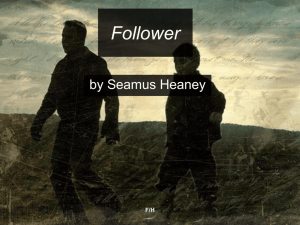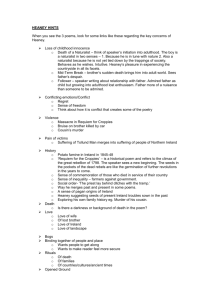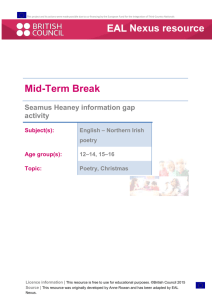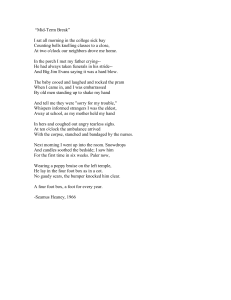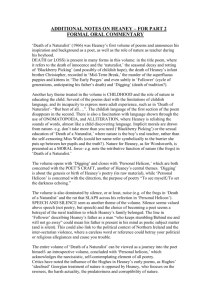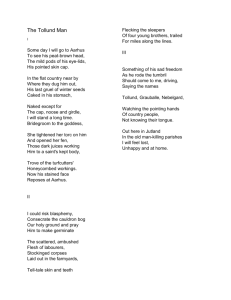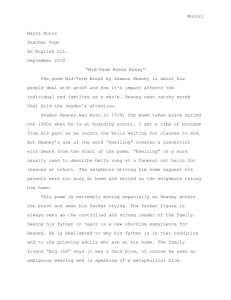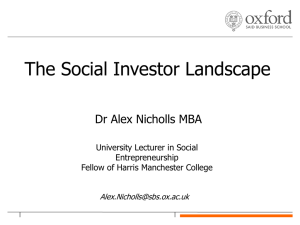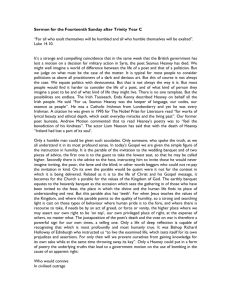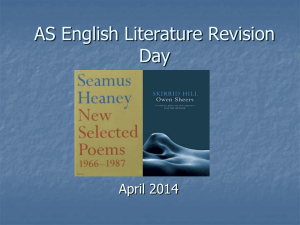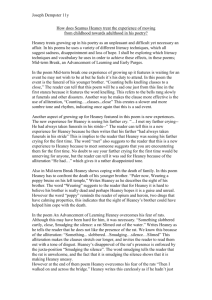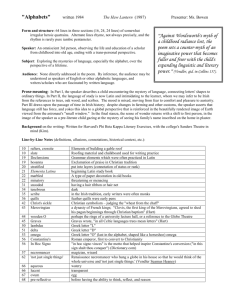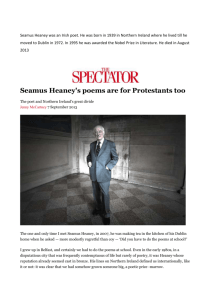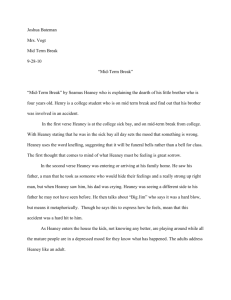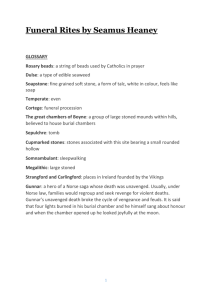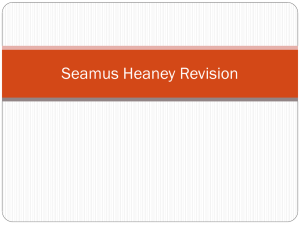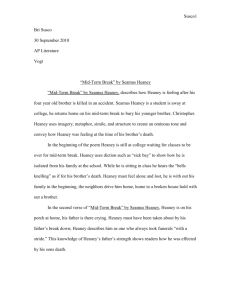Follower
advertisement
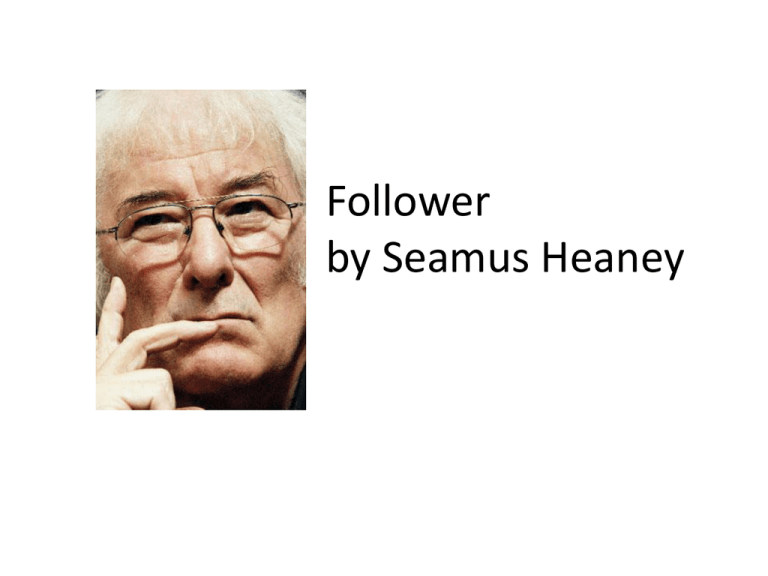
Follower by Seamus Heaney Subject & Themes •Heaney as a child following his father literally and metaphorically. •Son’s tribute to his father based on admiration. •Awareness that he gets in the way but eager to be in the fields as his father goes about his work. •Themes of father/son relationships, frustration, role reversal, old age and change. Tone & Mood •Reflective, remembering childhood and observing •the changes that have taken place. •Final stanza – clear aggravation at father – •hypocritical? The title has dual meanings – the young Heaney follows his father as he ploughs the fields. By the end of the poem his father follows Seamus. Follower simile – the poem opens with an adoring simile – makes us imagine Heaney’s father as a strong, impressively large man My father worked with a horse plough, His shoulders globed like a full sail strung Between the shafts and the furrow. The horses strained at his clicking tongue. agricultural terms – the shafts are the sticks that link the plough to the horse. The furrow is the deep line cut in the earth by the plough. presumably used to encourage the horse – shows he is an expert at what he does short, powerful statement about his father’s skill – reinforces how good he was An expert. He would set the wing And fit the bright-pointed sock. The sod rolled over without breaking. At the headrig, with a single pluck technical terms related to the plough sibilance – emphasises skillful ‘headrig’ - the mechanism which ploughs the earth enjambment – continuation of meaning from last stanza – the poem has a momentum and flow emphasises this was really hard work Of reins, the sweating team turned round And back into the land. His eye Narrowed and angled at the ground, Mapping the furrow exactly. another example of his expertise – he is skillful and precise in his work contrast to his father’s skill – the young Heaney is awkward and clumsy; the tone changes here with ‘I’ I stumbled in his hobnailed wake, Fell sometimes on the polished sod; Sometimes he rode me on his back Dipping and rising to his plod. unusual adjective to describe mud – shows the care and attention of his father’s work vivid imagery shows his father was caring and affectionate despite his son’s clumsiness longing, melancholy tone – Heaney wanted to follow in his father’s footsteps but was not able to, as revealed in ‘Digging’ I wanted to grow up and plough, To close one eye, stiffen my arm. All I ever did was follow In his broad shadow around the farm. half-rhyme – adds to the regretful tone of this line list of three verbs – emphasises the trouble he caused I was a nuisance, tripping, falling, Yapping always. But today It is my father who keeps stumbling Behind me, and will not go away. ‘but’ – drive-word which changes tone The poem ends on a bleak tone, at contrast with what has gone before it. ‘Not go away’ – sounds harsh and unforgiving, unlike his father who picked him up. Quotes to Underline & Explain •‘his shoulders globed like a full sail strung’ •‘mapping the furrow exactly’ •‘I stumbled in his hobnailed wake’ •‘sometimes he rode me on his back’ •‘I was a nuisance, tripping, falling’ •‘It is my father who keeps stumbling’ Viewpoint •1st person narration – autobiographical based on lived experience of poet. •Heaney reflecting on how their relationship has changed over time. Language & Imagery ‘an expert’ – admiration. Animals obey his effortless instructions (‘single pluck’, ‘clicking tongue’) Eager to follow in father’s footsteps – ‘I wanted to grow up and plough’ Stanzas laid out like furrows in a field. Language & Imagery • Nautical imagery. • Lexis specific to farming. • ‘Will not go away’ – frustrated tone, angry at father.
